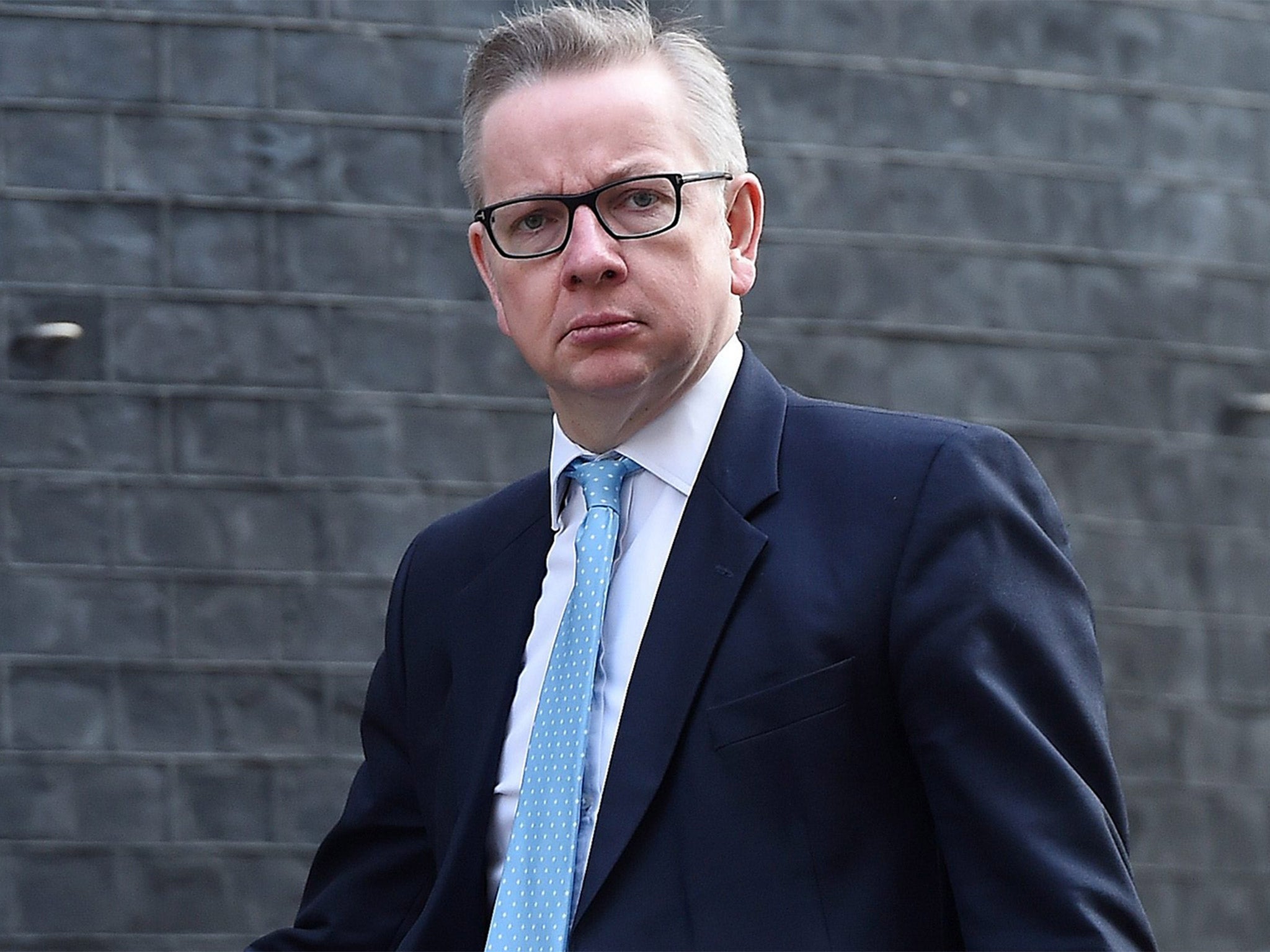Tom Peck's Sketch: Michael Gove nodded so violently he looked like he was bowing
Mr Gove remained enthusiastically supportive of George Osborne as he explained his disability benefit U-turn

Your support helps us to tell the story
From reproductive rights to climate change to Big Tech, The Independent is on the ground when the story is developing. Whether it's investigating the financials of Elon Musk's pro-Trump PAC or producing our latest documentary, 'The A Word', which shines a light on the American women fighting for reproductive rights, we know how important it is to parse out the facts from the messaging.
At such a critical moment in US history, we need reporters on the ground. Your donation allows us to keep sending journalists to speak to both sides of the story.
The Independent is trusted by Americans across the entire political spectrum. And unlike many other quality news outlets, we choose not to lock Americans out of our reporting and analysis with paywalls. We believe quality journalism should be available to everyone, paid for by those who can afford it.
Your support makes all the difference.Most normal people quite rightly don’t know that the debate on the Budget goes on for several days after the Chancellor has sloped off back to Number 11 before being formally voted into law around a week later.
For the Chancellor to address the debate for a second time is highly unconventional. Ken Clarke was the last to do it. Most normal people quite rightly don’t care, but given the events of the last few days this may end up being among the more significant moments of history George Osborne ever makes.
It was the 48-hour disability benefit U-turn that had prompted this unlikely event. Mr Osborne evidently felt he had to explain himself. Obviously, he didn’t actually explain himself, that would be not only rare but completely without precedent.
Conveniently, he arrived in the chamber as Wes Streeting, Labour’s bright young cabin boy from Ilford North, was coming to the end of his ten-minute-rule bill on the perils of Uber, prompting cries of “Taxi for the Chancellor”.
How they laughed. As Mr Streeting went through the standardised rigmarole of marching down the centre of the chamber, bowing every three steps and placing his bill upon the mace, the Tory backbenches cried, “Make him leader!” If only.
The supportive braying for Gorgeous George rose to a high plateau of obnoxiousness that is rarely reached. Michael Ellis, member for Northampton North, growled like a 1950s asylum patient undergoing electroconvulsive therapy (the practice is only used now for dealing with the most profound psychoses, the sort of uncontrollable disturbance you might suffer if you’ve spent 48 years in the company of Michael Ellis, as only Michael Ellis has).
“If we are going to deliver a strong and compassionate society for the next generation, we have to live within our means,” the Chancellor roared above the madding crowd. It was almost as if he had temporarily forgotten that he was only here in the first place to deal with the fallout from his own threat to cut benefit payments to the disabled to fund a budget surplus. But that wasn’t sufficient to deter Michael Gove, who dipped his agreeing head every few seconds with such grave intensity that by the end he appeared to be not nodding, but bowing.
Naturally, all sides of the House offered their thoughts to the people of Brussels, and agreed that this was not a day to be making political capital out of the murder of innocent civilians. But as for the political capital that could be made from accusing the other of making political capital, well that was unending. John McDonnell, being Shadow Chancellor, questioned the Chancellor’s fitness for office. That, after all, is his job. “The honourable gentleman makes a very personal point about fitness for office on the day of a major terrorist attack,” James Cartlidge told him.
“The honourable gentleman has called into question the morality of the leadership of my Right Honourable Friend the Chancellor,” Tom Tugenhadt, a former British Army officer, said. “But would the honourable gentleman please discuss with this house the morality that allows him to stand with bombers who murdered my friends in Northern Ireland and to question the integrity of the Chancellor?”
He was politely asked to keep further interjections to the subject of the Budget. Time and again, Labour members rose to question either why, as Iain Duncan Smith had suggested, Conservatives were targeting the disabled to pay for tax cuts to the well-off, or to question how this gap in the Budget would now be filled.
But the stock answer was the same. “Labour presided over the biggest single fiscal fiasco in the country’s history,” Osborne told them, “and have a black hole in their current plans so large that it would break the Hadron Collider.”
There is a joke in there, undetectable though it is to the human brain. We shall just record here that given the Large Hadron Collider is, in astronomical terms, a small science experiment going on under a town in Switzerland, one has to imagine that even the smallest of black holes, which form when massive stars collapse, might pose a risk.
When tiny stars collapse under their own weight, not that many people notice. Unless they’re disabled.
Join our commenting forum
Join thought-provoking conversations, follow other Independent readers and see their replies
Comments